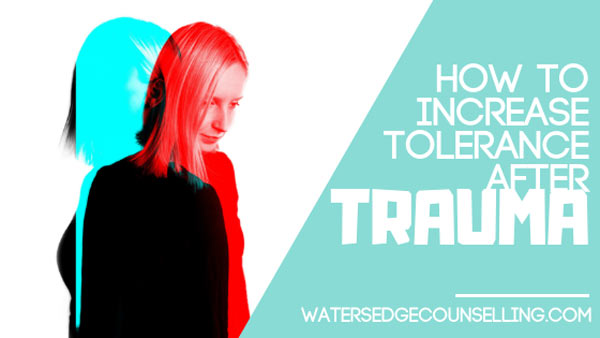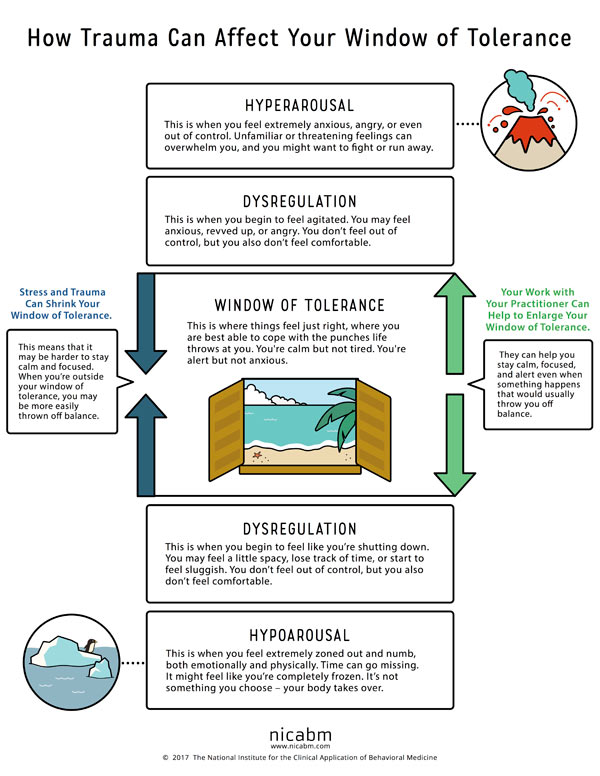
We have all felt overwhelmed at one point or another, but for people experiencing trauma this sense of being overwhelmed or over-stimulated can be debilitating. Because trauma impacts the part of our brain called the Amygdala which causes people to function readily in their fight or flight response, everyday occurrences that would cause minor discomfort to other people can trigger extreme reactions in many going through trauma.
This infographic by The National Institute for the Clinical Application Behavioural Medicine describes our ability to cope with different stimulants and circumstances as a ‘window of tolerance’. Everyone has a different sized window of tolerance and this can change due to stress and trauma, which is why people who go through trauma may be triggered by sounds or events they were previously nonchalant too. You may have also seen people experiencing intense anger, grief or anxiety also respond in this seeming irrational way. Yet for their brain, this is perfectly rationale and how they survive.
When we are overstimulated, we enter dysregulation. This is like the pathway to a major emotional episode. Some people may refer to it as a “freak out,” others may lash out emotionally, or dissociate. This can go one of two ways— we feel like we are shutting down and are unable to function, or we are so agitated we begin to lose control of ourselves.
Take a look at the infographic below and see if you recognise any of these pathways in yourself. Working through trauma, anger, grief or anxiety is complex, but by partnering with a therapist you can widen your window of tolerance and begin to heal.

Have you been traumatised? Do you ever shut down, or feel out of control? Here’s what you need to do: Contact Colleen on 0434 337 245 or Duncan on 0434 331 243 for a FREE 10 minute consultation on how we can best help you or book online .
Leave a Reply